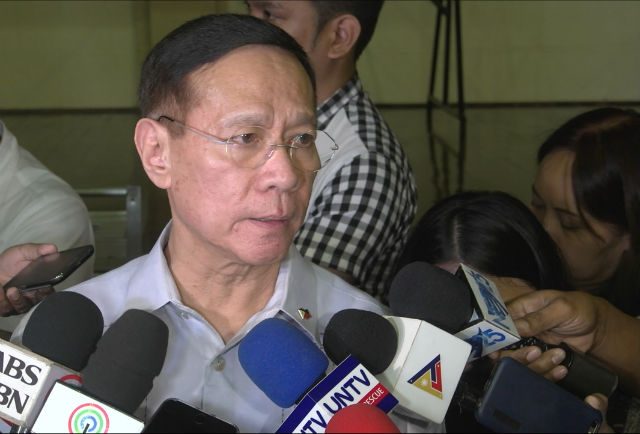SUMMARY
This is AI generated summarization, which may have errors. For context, always refer to the full article.

MANILA, Philippines – If Health Secretary Francisco Duque III had his way, he would prefer the Food and Drug Administration (FDA) to be a body separate from the Department of Health (DOH).
He would also want legislators to draft a law making the Research Institute for Tropical Medicine (RITM) less prone to the influence of companies whose products they conduct clinical studies on.
This was Duque’s suggestion as he announced his marching orders for DOH officials on how to monitor and handle cases of children who would later develop severe dengue after receiving Sanofi Pasteur’s Dengvaxia vaccine through the now-suspended immunization program.
“For RITM, I would like to ensure that the checks and balances are fully in place and that there would be no outside undue interference from the industry. So I think we should insulate the RITM in a way that it can do its job without being influenced by [the] industry,” said Duque on Monday, January 29.
“For FDA, the same is true. We want to improve, ensure the independence of the FDA… Ihiwalay na lang (Let’s make them separate). I think in some other countries, their FDAs are separate from their ministries of health,” he added.
The FDA and the RITM are both agencies under the DOH.
The FDA is a regulatory body tasked to determine whether a health product – like drugs, vaccines, food, and cosmetics – is safe and effective for the public to consume. When the FDA issues a certificate of product registration (CPR), it means the product is allowed to be sold in the country.
The RITM, meanwhile, is mandated to conduct research on the diagnosis, control, and prevention of tropical diseases. It also conducts medical trials aimed to better understand and control tropical diseases.
Both agencies came under fire after Sanofi announced in November 2017 that Dengvaxia can cause a person to develop severe dengue symptoms if he or she received the vaccine but has never had dengue before immunization.
Two congressional hearings exposed the fast manner by which the FDA issued the CPR for Dengvaxia in December 2015, even if the RITM’s clinical trial on the vaccine’s safety had not yet been completed at the time.
Duque said Sanofi reportedly paid honoraria to some of the RITM’s lead investigators when they were still conducting trials on Dengvaxia.
Ex-DOH chief Janette Garin launched the program just 4 months after the FDA approved Dengvaxia’s commercial sale in the Philippines, under the presidency of Benigno Aquino III.
Less than two years later, Sanofi issued a warning against its own vaccine, reigniting public outrage over the “rushed” implementation of the dengue immunization program.
Duque immediately suspended the program but by then, some 837,000 Filipino grade-schoolers had already gotten the vaccine.
The FDA first ordered the market pullout of Dengvaxia after Sanofi’s advisory.
The agency later slapped Sanofi with a P100,000 fine and banned the vaccine’s sale in the country for a year after the company failed to comply with post-marketing authorization requirements. – Rappler.com
Add a comment
How does this make you feel?
There are no comments yet. Add your comment to start the conversation.